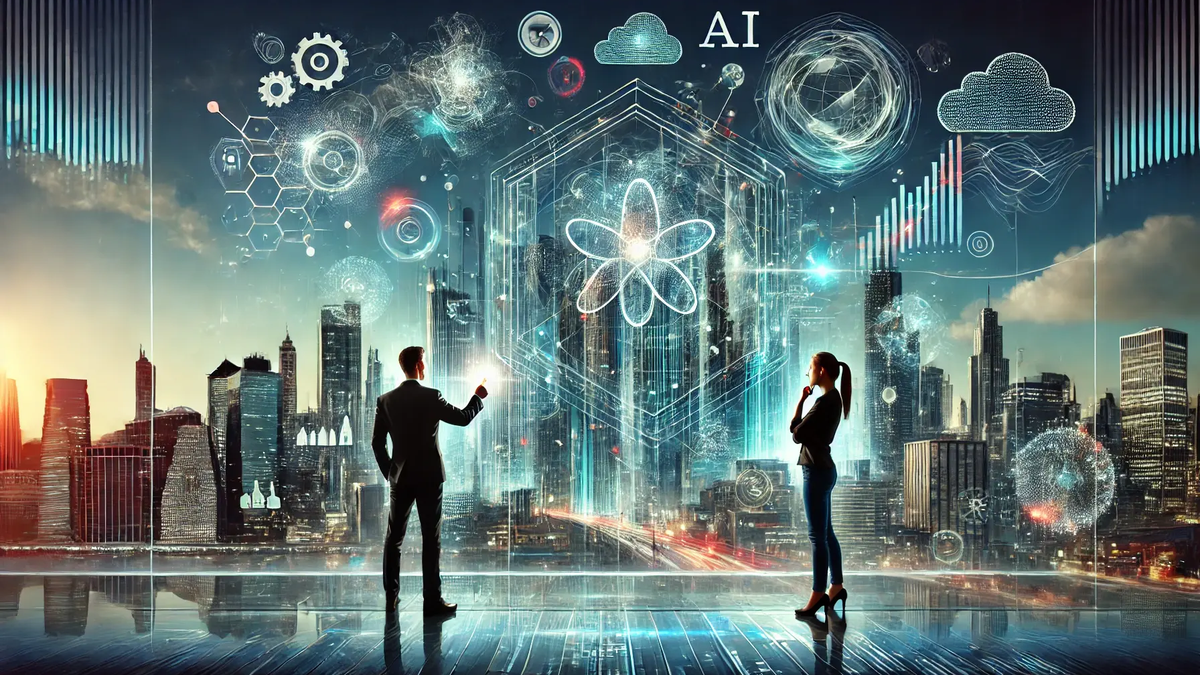Introduction
As we stand on the threshold of 2025, the world is poised for transformation across various sectors. The rapid evolution of technology, shifting cultural dynamics, and changes in global economic landscapes are set to redefine how we interact with each other and our environment. This article delves into the key trends anticipated to shape the future, exploring their implications for businesses, technology, and culture. By understanding these pivotal shifts, organizations and individuals can better prepare for the changes ahead.
Technological Advancements
The technological landscape is undergoing significant changes that will have profound effects on various industries. Here are some of the most notable trends to watch:
1. Artificial Intelligence and Machine Learning
Artificial intelligence (AI) and machine learning (ML) continue to advance at a rapid pace, transforming industries from healthcare to finance. By 2025, it is expected that:
- AI-driven automation will streamline operations and reduce costs.
- Personalized healthcare solutions will emerge, utilizing AI to tailor treatments to individual patients.
- Ethical AI considerations will become a focal point, as society grapples with the implications of AI decision-making.
Businesses that harness AI effectively will gain a competitive edge, while those that fail to adapt may find themselves falling behind.
2. Internet of Things (IoT) Expansion
The Internet of Things (IoT) is set to expand significantly by 2025, with a projected 75 billion connected devices globally. This expansion will lead to:
- Smart homes and cities becoming more prevalent, enhancing efficiency and sustainability.
- Increased data generation, leading to new opportunities in data analytics and business intelligence.
- Heightened security concerns as more devices become interconnected.
Organizations must prioritize cybersecurity measures to protect sensitive data and maintain consumer trust.
3. Quantum Computing Breakthroughs
Quantum computing is moving from theoretical research to practical applications. By 2025, we may witness:
- Significant advancements in computational power, allowing for complex problem-solving.
- Breakthroughs in drug discovery and materials science.
- New encryption methods that could revolutionize data security.
The implications of quantum computing are vast, and companies should begin exploring how this technology could impact their operations.
Shifts in Business Models
The business landscape is also evolving rapidly, with several key trends emerging:
1. Remote Work and Hybrid Models
The COVID-19 pandemic accelerated the adoption of remote work, and by 2025, hybrid work models are expected to be the norm. This shift will lead to:
- Changes in office space design, focusing on collaborative areas rather than individual workspaces.
- Increased reliance on digital collaboration tools and platforms.
- New policies surrounding employee well-being and work-life balance.
Organizations that embrace flexibility will attract top talent and enhance employee satisfaction.
2. Sustainability and Corporate Responsibility
Consumers are increasingly prioritizing sustainability, pushing companies to adopt eco-friendly practices. By 2025:
- Brands that prioritize sustainability will enjoy greater loyalty from consumers.
- Regulatory changes will mandate stricter sustainability practices.
- Innovations in green technology will flourish, offering new business opportunities.
Companies that integrate sustainability into their core strategies will not only comply with regulations but also drive long-term profitability.
Cultural Evolution
As technology and business models evolve, so too do cultural norms and societal values. Key trends include:
1. The Rise of Digital Communities
With the proliferation of social media and digital communication, communities are forming around shared interests rather than geographical boundaries. By 2025, we can expect:
- A greater emphasis on online identity and personal branding.
- The emergence of virtual events and gatherings as a standard practice.
- Increased collaboration across diverse groups, fostering inclusivity and innovation.
Organizations should recognize the potential of digital communities for engagement and collaboration.
2. Changing Consumer Behavior
The pandemic has altered consumer behaviors, leading to lasting changes in purchasing patterns. By 2025:
- Online shopping will continue to dominate, with consumers expecting seamless digital experiences.
- Social commerce will grow, integrating shopping with social media platforms.
- Ethical consumption will become a priority, with consumers demanding transparency in sourcing and production.
Businesses must adapt to these evolving consumer expectations to remain competitive.
Broader Implications
As we look toward 2025, the convergence of technological advancements, shifts in business models, and cultural evolution will have significant implications for society. Policymakers will need to address the challenges posed by these trends, particularly in areas such as:
- Data Privacy: As data collection intensifies, robust regulations will be necessary to protect consumer privacy.
- Workforce Development: Skills training and education will be crucial to prepare the workforce for new technologies and job roles.
- Equity and Access: Ensuring equitable access to technology and opportunities will be essential to prevent widening disparities.
Conclusion
As we navigate the complex landscape leading to 2025, it is clear that a multitude of trends will reshape our world. Businesses, individuals, and policymakers must remain vigilant and adaptable to these changes. By embracing technological innovations, rethinking business models, and understanding evolving cultural dynamics, we can position ourselves for success in the years to come. The future may be uncertain, but it also holds immense potential for those willing to embrace change and innovate.
See more Business Focus Insider Team

